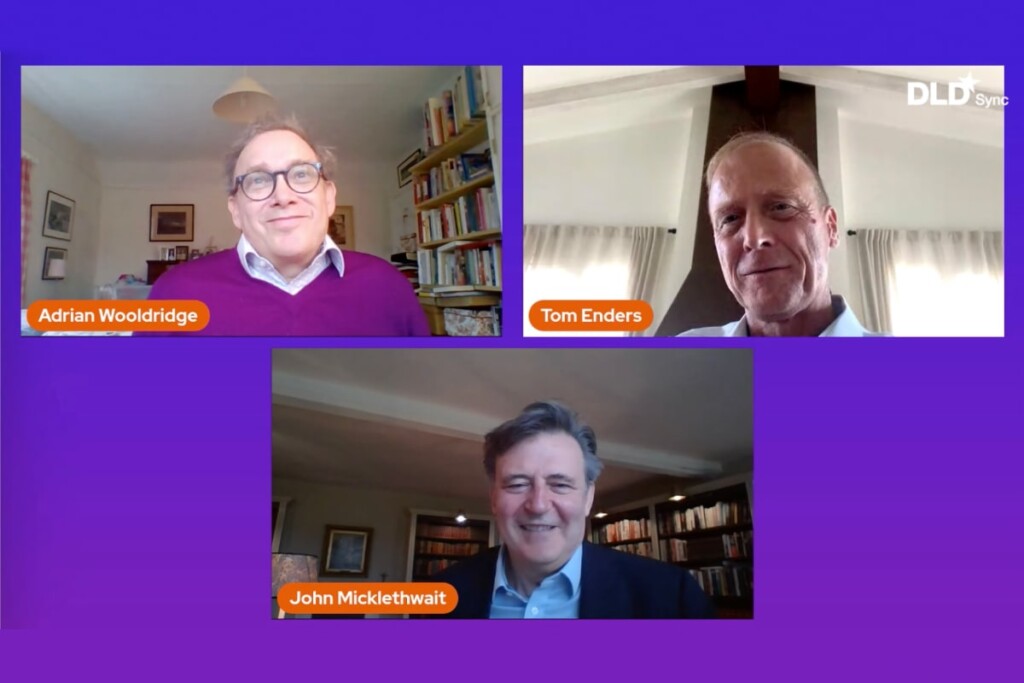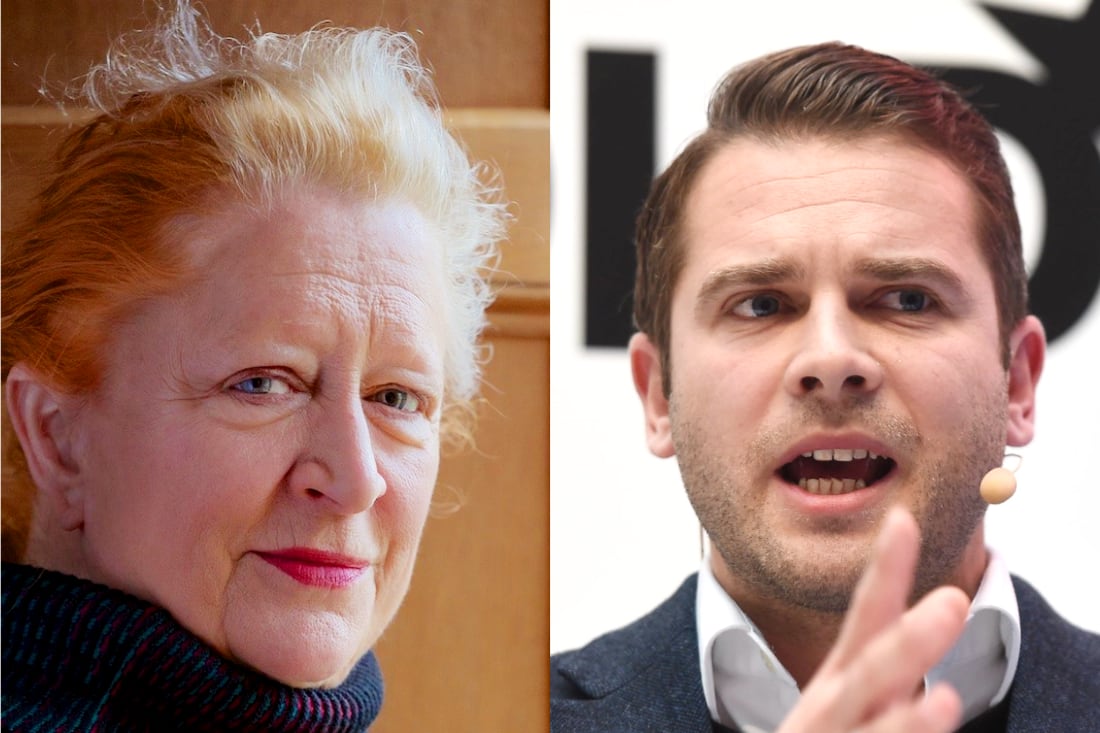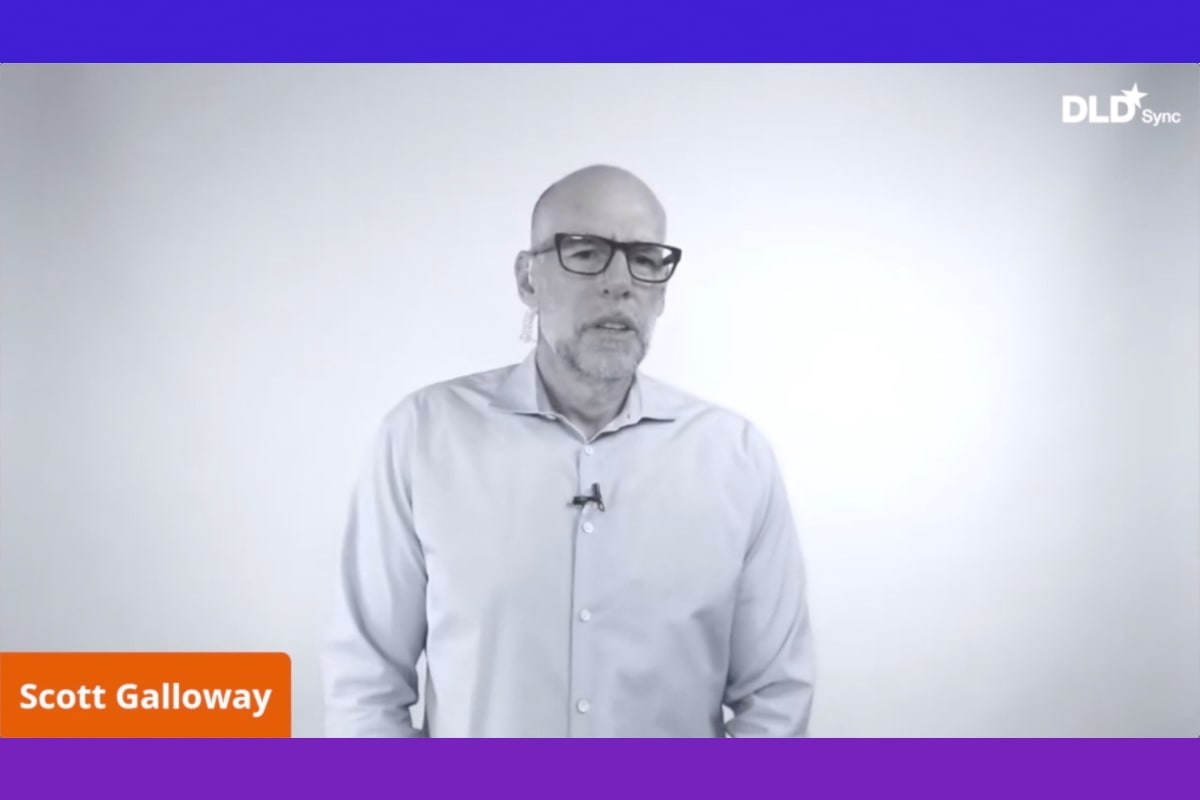DLD Sync

Covid-19: The Wake-Up Call
The Covid crisis has not just highlighted the failures of certain governments; it is accelerating a shift in the balance of power from West to East. Bloomberg Editor-in-Chief John Micklethwait and Adrian Wooldridge, political editor of the Economist and author of its Bagehot column, discuss main aspects of their recently published book The Wake-Up Call: Why the Pandemic Has Exposed the Weakness of the West, and How to Fix It with Tom Enders, President of the German Council of Foreign Relations and former CEO of Airbus.
After a decade where politics in the U.S. and the U.K. were consumed with inward-facing struggles, a new Asian model of government has been gaining ground in countries like South Korea, Singapore and Taiwan. China too has been climbing the league tables in education and health. The recent events in Washington, D.C., have highlighted the problems in the West’s most powerful democracy; but the EU, which has been through Brexit and Covid without fundamentally changing its structure, also faces challenges. This session examined the major question facing the world right now: can the West wake up before it’s too late?

Adrian Wooldridge
The Economist
Adrian Wooldridge is the Economist’s political editor and author of the Bagehot column. He has previously been the Economist’s management editor, and author of the Schumpeter column and Washington bureau chief and author of the Lexington column. He has written or co-written eleven books.

Tom Enders
German Council of Foreign Relations
Tom Enders is the President of the German Council on Foreign Relations (DGAP). Previously he served as CEO of Airbus and EADS from 2005 to 2019. He studied at the Universities of Bonn and Los Angeles (UCLA) and served as an air-borne officer in the German Armed Forces.

John Micklethwait
Bloomberg
John Micklethwait is the Editor-in-Chief of Bloomberg where he oversees editorial content across all Bloomberg platforms, as well as its research services including Bloomberg Intelligence. Previously he was Editor-in-Chief of The Economist where he led the newspaper into the digital age.
Video

Sync Scroll
| Time | Topic |
| 0:05 | Intro by Steffi Czerny |
| 4:00 | Why government matters: John Micklethwait explains key aspects of The Wake-Up Call. |
| 4:30 | The pandemic exposed the importance of government: “Good government meant that you survived Covid, bad government gave you a very poor chance.” |
| 5:30 | Comparing the performance of Asian countries during the pandemic with Britain and the West. |
| 7:20 | If Western democracies “keep on neglecting government in the way they have… the future of the world will be back in Asia.” (JM) |
| 9:15 | Why the pandemic may turn out to be the wake-up call that actually brings change. |
| 10:10 | “…we see China emerging as a superpower… And we see that at a time when global tensions with China are growing.” Adrian Wooldridge. |
| 12:15 | Meet “Bill Lincoln”, a fictional president the U.S. may wish were real. |
| 14:35 | Taking inspiration from the past: how could government be both smaller and more efficient (again)? |
| 17:30 | Europe’s hopes for President Biden. |
| 21:25 | America, torn between interventionism and isolationism. |
| 24:15 | How conservatives in Britain invented the welfare state. |
| 26:00 | “Trump was not an aberration. Trump was a response to a demand.” (AW) |
| 29:00 | Joe Biden’s challenges – domestically and internationally. |
| 32:00 | The “false positive” of thinking that autocracies can better handle crises than democracies. |
| 35:15 | Why Singapore could serve as a role model for the West. |
| 43:00 | After Brexit: the tricky relationship between the United Kingdom and the EU. |
| 50:00 | Can the European Union thrive without tighter political integration? |
| 51:50 | How civil or military service could help to create a new feeling of social cohesion – and “bring clever young people into the state”. |
| 54:30 | U.S. vs. China: America “has a capacity to reinvent itself, which is unequaled in the world… And China doesn’t have that.” (AW) |
| 58:20 | The difference between Japan in the 1980s and China now. |
| 1:02:10 | Wrap-up. |
More DLD Sync

Prediction Addiction
